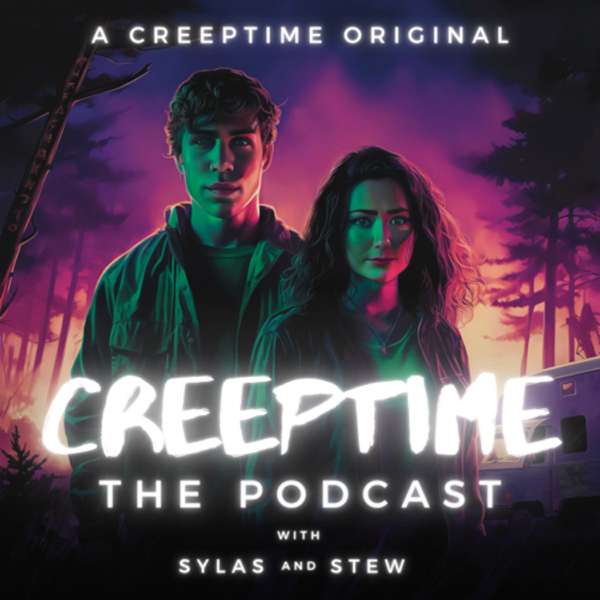The song in this episode is Nightmares by Keyland.
Documents and Resources for this episode are available here: https://panic-button-episode-7-show-notes.tiiny.co
Episode 7 “Didn’t Think It Could Get Worse” follows the survivors of Jim Luman after their breakups. Nails in your driveway? DHS showing up at your house? A professional complaint filed on you at the Board of Nursing? The abuse never seems to end, even when you leave.
______
TRANSCRIPT
Colleen McCarty 00:00
The contents of this episode includes topics that cover separation abuse and legal abuse as well as violence against women, and potentially bestiality. It's not suitable for children under 18.
Heather 00:21
So after I left him, he made a formal complaint to that I worked nursing. So I had to go and sit in front of the board and answer to everything that he said I did. There was a HIPAA concern, because I looked at his files, which I was consulting, so whatever, um, there was a, an accusation that I was guilty of Beast reality. There was, there's like six things. The number one thing that stands out is he said that I cut the GPS locator off of my state car. I left that office, I drove to our state garage, went to the mechanic and said, Tell me my GPS is working. He in fact, told me my GPS was gone. They looked back. My GPS was disabled in October. So he took that GPS off my car in October, I don't even know where the damping is, I wouldn't know how to take the thing off. So this was before we got married, that he cut this locator off.
Leslie Briggs 01:28
That was Heather, Jim's fourth wife. Extracting yourself from an abusive relationship is difficult, even when you have an incredible support system and everything falls in place. But with Jim, he makes every effort to interfere with manipulate and threaten other aspects of your life that make it much more difficult to leave. And with Heather, you can see he tried to get her nursing license taken away. It's a form of coercive control, post separation, abuse, Colleen Do you want to tell us what legal abuse and post separation abuse are?
Colleen McCarty 02:09
Yeah, so there are some kinds of abuse that are so covert and misunderstood even now that we're just as a society starting to build a language to even talk about them. And two of the types that are particularly prevalent in Jim's cases are legal abuse, also called litigation abuse, and the second one is post separation abuse or also called separation abuse. So firstly, legal abuse and domestic violence relationship refers to instances where the abuser is using the legal system to manipulate or exert control over their victim. And this can range from frivolous filings of lawsuits protective orders, falsely accusing the victim of crimes, manipulating custody agreements or arrangements and potentially withholding financial support. The abuser can use legal means to further isolate the victim from friends and family, such as by falsely obtaining protective orders, or making false complaints to government agencies like in our state, it's called DHS, like making child custody or saying that you're not parenting your child appropriately. Right. And then the second one host separation abuse is particularly in domestic violence relationship where the abuse continues after the victim leaves. And this can include harassing the victim through phone calls, text messages, social media, stalking, making face, sorry, making false accusations to friends, family, or law enforcement and using custody arrangements as a means of control. It's also like, using threats against someone's life, against their children's lives, threats or future violence to try to keep someone from leaving. Because we know that once someone does leave a relationship like this is the most dangerous time. Right. And we know he likes to also use suicide as a threat to live in who may be preparing to leave or or making an attempt to leave. Yes. And so it makes essentially for post for post separation abuse. It makes people stay in violent relationships, which is something a lot of people don't understand. It's like I hear this all the time. Like why do they stay? Why do they say in the such a trope for me? Because I've heard it so many times but also I feel like we kind of woke up to this as a society in like 2016 but people in Oklahoma are still asking me why did she stay and it's like post separation abuse is usually the answer. Because if they try to leave they I think in our first episode Kate waits Professor Kate waits describes this idea of like there are a lot of reasons why people say and situations they shouldn't stay in -- take all of those and then add the threat to your life.
Leslie Briggs 04:57
Right yeah.
Colleen McCarty 05:00
And then the fear of being alone to face this kind of abuse can just make leaving seem kind of like, insurmountable and daunting.
Leslie Briggs 05:09
Yeah, and, you know, I will just say that I go I find myself cycling through when we you know, not not just with some of the stories on this podcast, but with all a lots of our work on domestic abuse cycling through the "Why did she stay? Well, I wouldn't do it that way." And then remind, you know, it's like a, it's a it's so ingrained in our culture and society that those cycles play through my mind on occasion, and I have to catch myself and go, you know, why she stayed? Yeah, you know, the the having the ability to leave and leave successfully without dying is -- it's a monumental task and post separation abuse to your point is generally the reason that it's so so difficult.
Colleen McCarty 06:02
And the fear of the unknown to you, it's like that whole thing about the devil you know, is better than the devil you don't I think a lot of times, and we say this in season one that survivors know how to keep themselves safe. And oftentimes the ways that they keep themselves safe are staying
Leslie Briggs 06:18
right. And also to you know, Angela Beatty who's an expert on this issue to her point in season one as well that like, most times, people want want the abuse to stop, they want the person that they love to just do what you said, I think in the first episode is like be the person that they can see that they're capable of the potential potential to be a good person and to stop doing this is also a factor in leaving, but in case you didn't know, I'm Leslie Briggs,
Colleen McCarty 06:48
and I'm Colleen McCarty, this is panic button, season two, Operation Wildfire, you're listening to episode seven. Didn't think it could get worse.
Leslie Briggs 06:59
If you're just joining us, you'll want to go back and start listening from episode one.
Colleen McCarty 07:02
One of the most important things to remember about Jim is that he fancies himself a legal expert and works closely with attorneys. His sister was an attorney. And he, according to his friends, learned how to practice law from working with her. Through his work with PI and Associates, he is always connected to an attorney who could represent Him in exchange for his services, on the PI consulting work. So in all these cases we're looking at he was never short, any legal help if he wanted to file a lawsuit. Conversely, his victims or survivors don't have the money to hire lawyers don't know which lawyers would be good don't have access to just free legal help anytime they want. And so it ends up becoming a very huge imbalance of power for them. And anyone who's like embedded in the legal community in any ways that they're putting forward, can inherently be an intimidating for people who are not familiar with the courts or with legal processes. And his relationships with attorneys are also helpful in getting him favorable plea deals in some of these smaller counties where the attorneys that he has work with the judges and the prosecutors a lot. And it's just sort of this off the bat advantage that he has in any type of legal proceeding, I would say.
Leslie Briggs 08:29
Yeah, I think, you know, there's like a running joke from folks like folks who, who practice mostly in federal courts then find themselves in a state court called Getting hometowned. You don't I mean, you're in front of the local judge who deals with the local bar, those attorneys are in that courthouse every single day. And it's not to say that, like judges are just not applying the law, although
Colleen McCarty 08:56
the other day said, Well, in federal court they care about the Constitution.
Leslie Briggs 09:01
Well, the truth hurts wake up, wake up Oklahoma do better. But I will say like so it's like these relationships, these relationships impact the proceedings for sure. Like it just not that the law doesn't get applied, but it can make, you know, if it's a close race, it can it can impact the final decision.
Colleen McCarty 09:20
Plus, it just makes it easier. It's like when your attorney goes in to talk to the prosecutor about your case about trying to get you a deal and it's a prosecutor they work with every day and they know you always bring them reasonable deals and they make recs to you because you know, I did five recs from yesterday I have to do a rec for him today like it's just it ends up as human nature does. It ends up being this like I'm familiar with this person and this is what I did for them yesterday and this is what I did for them the day before and so that's what I am expected to do for them today. And if yesterday I gave his guy a six month plea on deferred for or domestic assault? And today I'm gonna give his guy a six month deferred.
Leslie Briggs 10:04
Yeah, you like naturally people fall into patterns and those patterns play out in the courthouse. No lawyers are no different from regular humans.
Colleen McCarty 10:12
What What?
Leslie Briggs 10:14
No, but many survivors are afraid to leave violent situations, right, as we're just discussing that they know the system will struggle to separate them from their abuser, particularly if you're married, and particularly if you have minor children, that can just add to the difficulties. And oftentimes, the system, as we've seen throughout this podcast will fail to really hold their abuser to account or fail to stop that abuser from hurting them. Like, on the one hand, you have this idea of accountability that this person needs to answer for what they did. But on the other hand, you just have like immediate safety issues that need to be dealt with. And so it's like, this system is kind of shitty at both, unfortunately. And so but when abusers particularly abusers, like Jim continue to escape consequences, it continues to put survivors and future victims in danger. And something we hear a lot a lot from prosecutors and courts is that they can't prosecute cases where victims don't want to cooperate.
Christen 11:09
They told me that it was likely going to get a jury the assault charge. And they said, you know, we're not going to let him buy or we're not going to produce or whatever they were telling me, they weren't going to let him off or whatever. And then they called me on a Sunday, and said, Don't come to court tomorrow, we're not even going to hear the case. And then I got a call on Monday that said, we settled or whatever, and he pled not guilty. And or, you know, he pled guilty, and we reduced to, but like anger management or something, whatever. I just like collapsed, like right there, I can remember exactly where I was whenever I got that phone call.
Colleen McCarty 11:53
So go off girl,
Leslie Briggs 11:55
you know, I feel about this going. We've talked about this, in this case, particularly like let's take Christen's case, I have never met a woman more ready to get in front of a judge and a jury and take this man to task. She's ready to tell the story of what happened in that driveway. And you had a prosecutor who had a victim who would testify and what did that prosecutor do? offered a plea the night before the jury trial, and just told her not to show up? And what was the plea?
Colleen McCarty 12:26
At 90 days,
Leslie Briggs 12:28
so that the plea was 18 months? 18 months deferred. Now. He's on he's on that deferred sentence, when the shit happens with Heather and Iowa and he gets arrested. Oh, yeah. And so they then Christen being unwilling to give up, goes back to that prosecutor and says revoke, revoke that deferred sentence, because he's been arrested in Iowa, hold him to account in Oklahoma. And you know what happens?
Colleen McCarty 12:56
We're like, hey, you know what, and other states already doing that. So I don't really want to.
Leslie Briggs 13:01
what we get, though, we do get we do get a revocation, we do get a revocation. But do you know what the court sent? sentences him to? Is it the 90 days, 90 days? So we've gone down from gone 18 months, 18 months to 90 days? And then and then and then you know how I feel about this?
Colleen McCarty 13:20
Oh, it's very bad.
Leslie Briggs 13:22
And then he actually So Jim, having access to those lawyers, allows him to do something that is pretty much unheard of, in a case like this, you get 90 days in jail, credit time served, buddy, credit time serve. So if he got arrested, he spent five nights in jail. It's only 85 days. He appealed that decision. I still have questions logistically about how all of this happened in 90 day. I think he probably isn't retroactive. I think he probably what probably happened was like a bond was posted in the desert, like the sentence was stayed pending appeal. But the he lost the appeal. However, however, in the interim, he goes to anger management for 52 weeks, at some point, he has little certificate of completion that he presents to the court. And he goes and he files a motion for judicial review. Okay, he's saying he goes back to the trial court loses on appeal, goes back to the trial court says, Hey, Judge, check out this certificate from 52 weeks of anger management. And and by the way, in the interim, they've started bullying me these women have started bullying me on the internet and calling me an abuser online. How That's so unfair. I deserve 30 days instead. And he gets it and he gets it and he fucking gets it.
Colleen McCarty 14:41
You know what's crazy about this, like we're putting all the pieces together for you and letting you build the puzzle yourself. But if you listen to episode two, you might feel like this is a little bit familiar because it's a pattern Jim's father throughout the 1970s and now 1980s and early 1990s had a lot of his sentences reduced through these types of post conviction filings. And I don't think that's a coincidence at all. Every prosecutor I talked to you about this, every single one of them, every single one. I mean, it's like they're trained to say says domestic violence victims need to cooperate and prosecute their abusers. They walk away, they drop everything, they dropped the POS, they want to get back together with him. This is a toxic relationship, and she needs to just balls up, and go sit in front of a jury and testify against him if she really wants him to get time. And I would like to proffer to our listeners that that is bullshit.
Leslie Briggs 15:47
This this, these cases prove it.
Colleen McCarty 15:50
Not only that, but have you ever seen a murder victim testify at a trial? Oh, they can't. They're dead, they're dead. There's also an entire type of prosecution, which I know is now kind of happening in Tulsa County, at least, called Evidence Based prosecution, where you use all of the evidence, what a fucking concept, to prosecute the person, and you don't need that person's first hand testimony saying he hit me, you can actually just use the pictures and the medical records. And you can fucking get somebody prosecuted like that you don't have to force people to come back to the courthouse and go through this very traumatic process where they feel scared and in danger, right. And it's, it's also just this other form of victim blaming, we talked about in the last episode, but our whole system is this whole thing about not only are you a victim of violence, but you need to be the person that's solely responsible for doling out the consequences. And if you don't want to do that, and you don't have balls up, then you can just expect him to get out and hit you again. And that's your fault. Fuck yeah. I mean, yeah, that's what this is. That is what this is. That's been their approach for the whole history of time. Yeah, the whole history of of like the criminal justice system in the state of Oklahoma since we were first formed.
Leslie Briggs 17:07
But again, to reiterate, these women are ready, get them in front of a jury because they want to tell, they want to tell the public what happened. And there's evidence and there's evidence, lots of photos, lots of medical records, lots of voicemails, lots of text messages, lots of emails. The list goes on. But addition to the problems that we have with how prosecutors approach this often, many of the victims have tried to go to police to report what's happened in them. Only to be told, we're not here, not only are we like, not, you know, we're not only are we going to defer this person out, but we're not actually even going to make we're not going to charge them. We're not going to pursue this in any way.
Colleen McCarty 17:50
When Karrah tried to go to the police for her assault and rape. Her report what had happened to them. And to be fair, we'll talk about this in a later episode. It was several months after it happened because he threatened her only child and told her that if she told anyone he would kill her child. But she goes to law enforcement only to be told that the officers were not going to bring him in for questioning because he just didn't want to go.
Leslie Briggs 18:15
Is that right?
Colleen McCarty 18:16
Yeah. They said he doesn't want to come in for questioning. So there's nothing we can do. That was from the police. And then she went to the district attorney. And now you'll get to hear some from that meeting.
Karrah 18:25
When I was dropping him off. I told him I was gonna go to the police station. And he said that he would kill if I did. He said, If I tell a soul, he will tell it will kill. And my only child and I 100% believed him because he was very much capable of killing. And so I didn't tell a soul. I say that. It turns out I did. I told my sister I told my boss. And other than that, I went on to teach piano and pretend like it never happened. After all of this happened with Luman, he told me he was going to kill ___. So I didn't come forward a few months later, I actually got he started reaching out to me. And I actually would reach out to him because I kind of wanted a little bit of closure a little bit like I wanted to, I didn't want to meet him in person at all. I just wanted to be like, Hey, I know. I know. You're an abusive motherfucker kind of thing. And so he he sent me a message one night that said What's up? And I said...

 Our TOPPODCAST Picks
Our TOPPODCAST Picks  Stay Connected
Stay Connected







